Does Smoking Weed Really Kill Brain Cells? Distinguishing Truth from Propaganda
There are many substances on the market that could cause damage to both the brain and nervous system. Not to mention all the other adverse effects that these substances could have on people. One of the most popular? Alcohol. Studies have time and time again proven that alcohol kills brain cells. While cannabis critics love to claim that weed lowers IQ, and is thus responsible for brain damage, there is one very concerning question on our minds.
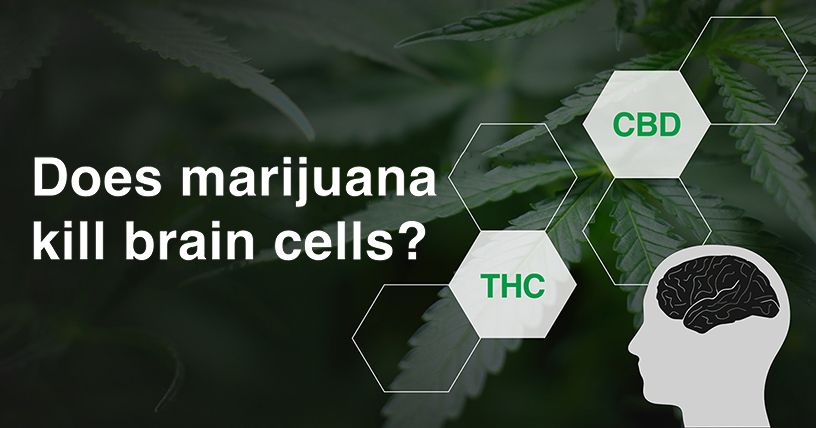
Since alcohol has scientifically been proven to kill off brain cells, why then is alcohol legal but cannabis is not?
Origins of the Myth
Believe it or not, the mystery of this very important question goes all the way back to at least the 1970s, although some pretty questionable research was already taking places in the 1930s. The 1970s was the start of America’s war on drugs, which has proven to be a complete failure. I’m sure you can see where we’re going with this.
Back then anti-cannabis lobbyists were insistent that weed caused permanent damage to the brain. While we do not deny that marijuana affects the brain, we are saying that the effects of weed are short-term, and don’t have the same adverse effects as alcohol or other substances do in the long-term.

For years, scientists have long ago debunked the myth that using weed kills brain cells. But, unfortunately, there are still uneducated and ignorant people out there who continue to propagate this false myth. Websites like Drug-Free world are still firmly spreading their views, and often misleading studies on the effects of marijuana on the brain. Many critics still compare weed to recreational drugs such as alcohol and tobacco, which have both shown to cause long-term brain damage in users, but in reality, weed does not seem to pose the same threat.
Of course, as we have mentioned above, there is no denying that marijuana does have some ill-effects. However, anti-cannabis campaigners love nothing more than to hugely overstate these effects and mislead society with their faulty and predetermined conclusions.
Exhibit A: The Infamous IQ Test Study
One of the most damning and well-cited studies surrounding weed use and brain damage stems from a study that was done in New Zealand and published back in 2012. The study researched over 1,000 individuals and compared their IQ score between the ages of 13 and 38. Each participant was interviewed at ages of 18, 21, 26, 32, and 38, and each time was asked about their level of cannabis use. The study found that regular cannabis users showed an 8 point drop in their IQ level when they reached the age of 38. This study became known as the Dunedin study.
For anti-weed campaigners, this is all the evidence they need to reassure themselves and others that cannabis is no good for you. However, they fail to recognize the many inconsistencies, and quite frankly, flaws in this study, that make the findings all but an accurate measurement of how weed affects the brain.
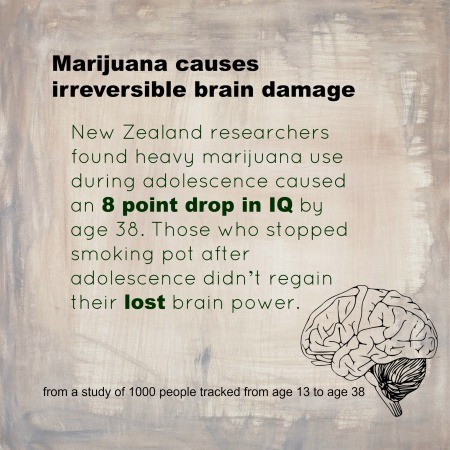
For starters, the number of people who showed a decline in IQ score was relatively small. Only 28 out of the 1,037 people showed this decline, and keep in mind; these are people who would have been using cannabis at least four days a week for more than twenty years. Furthermore, the study paid no attention to other factors which could have caused the IQ decline, such as family life and whether or not participants had dropped out of school.
There was also a study published in December of 2015 that compared weed-use among pairs of twins. Interestingly, while a four-point drop in IQ level was found in twins that used cannabis, the same decline was observed in non-users. It was determined that the more likely reason for this decline was due to environmental factors such as home life, school, and peer influence, rather than the use of marijuana.
The Truth About Marijuana & Brain Cells
There have been many studies conducted over the years that investigated the effects of weed-use on the brain. And most of these studies have failed to prove any permanent damage to the brain of long-term cannabis users.
As Dr. Perry Solomon, chief officer at HelloMD.com, and a retired anesthesiologist put it “Every study shows that it just doesn’t kill brain cells. But, while studies have shown that cannabis use doesn’t lead to permanent brain damage, there is the possibility of temporary negative effects for those who use the substance.
Specifically, cannabis is known to interfere with aspects of memory, and learning, but only on a short-term basis. This was demonstrated in a study done by researchers at Harvard University in 2001. They looked into the cognitive performance of people while they were using pot, and after they quit.
As part of the study, volunteers were tasked with completing various learning, memory, intelligence, and attention tests during a time when they didn’t consume marijuana. The study found that heavy weed-users had a far lower score in their memory tests, during the first week after quitting. But, their scores returned to normal within a month, and thus the study concluded that marijuana doesn’t cause irreversible mental deficits.
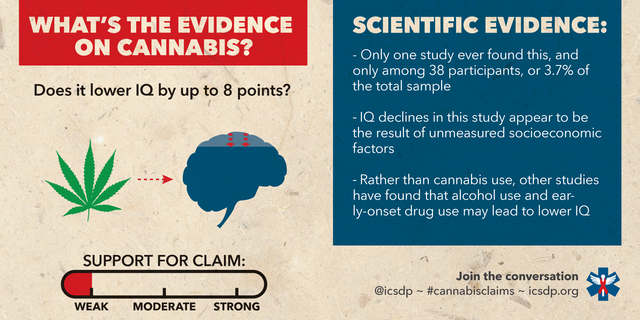
Throughout the last 20 years, a large number of studies have been done, and just about all of them have shown no significant drop in the IQ levels of marijuana users. In fact, in 2003, researchers analyzed 15 previous studies that had been done on the effects of long-term marijuana use and discovered that cannabis marijuana users showed only a ‘minor’ level of impairment in learning and memory.
It seems as though all recent studies are indicating that there is no apparent relation between cannabis use and long-term effects on the brain.
Downsides of Using Marijuana
Although most recent studies are pointing towards weed not killing off brain cells, there are still a lot of unanswered question. Especially regarding adolescent users and damage to the brain. During adolescence, the brain has not yet fully developed which means that smoking weed as a teenager could cause a dismal set of life outcomes including higher dropout rates, poor school performance, increased welfare dependence, lower life satisfaction, and greater unemployment.
However, research isn’t conclusive, and we can’t place all the blame on marijuana. Some researchers suggest that factors like peer influence, a tendency toward problem behavior, or emotional distress could influence drug use as well as poor life outcomes. But, it does make sense that consuming weed while your brain isn’t fully formed could cause damage later in life. If we look back to the results from the Dunedin study, the participants who did experience a drop in IQ had been using weed since they were teenagers. For this reason, it’s fair to say that while we support the idea that weed should be legal, it should only be legal to adults.
Another downside to marijuana are the dangers associated with smoking it. Smoking causes your brain to lose oxygen in some areas, and this could result in cellular damage. However, if this is something that is of concern to you, you could opt for other ways to use marijuana such as vaporizing or consuming edibles.
Can Weed Help Your Brain?
On quite the contrary to weed killing off brain cells, studies have shown that cannabis promotes neurogenesis. This is a term used to describe the growth of new brain cells. Crazy right? The process of growing new brain cells, specifically in the hippocampus, gives us insight into why marijuana is so effective in treating mood disorders like anxiety, depression, and stress; these are all conditions that are related to a lack of adult neurogenesis.
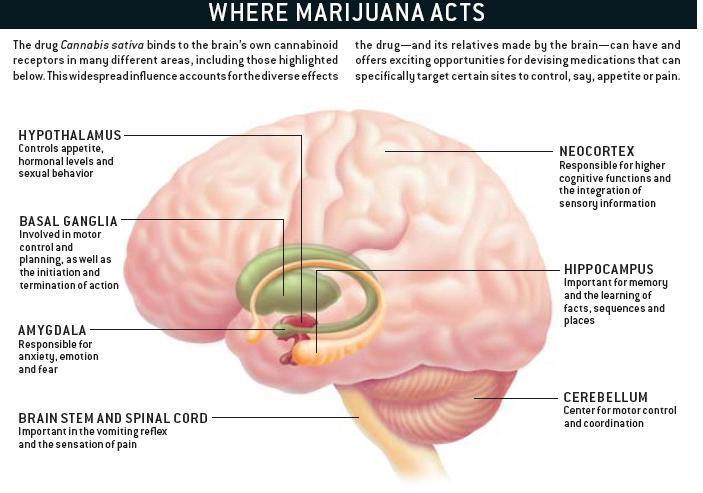
A 2015 study also found that CBD could reduce a neurotoxin known to trigger Parkinson’s disease. Neurotoxins are known to cause the malfunction of nerve cells, and some compounds found in weed can prevent damage to the brain that is caused by neurotoxins. Studies have also found that THC could reduce the inflammation and amyloid plaque build-up that is a cause of the Alzheimer’s disease.
Final Thoughts on Weed & Brain Cells
While many people believe that a psychoactive and illegal substance, with so much controversy surrounding it, must have the effect of killing off brain cells, the truth is quite the opposite. And the best part is, many studies have proven this. In fact, in some cases, cannabis could help the brain function. While there is concern surrounding the adolescent use of marijuana, studies have found that there is no long-term risk of brain damage in adults.
However, skeptics and anti-weed campaigners will always find information that suits their theory and use it to mislead the public. Unfortunately, there is nothing we can do to prevent the spreading of this misguided information, except sharing the truth, with the hope of spreading the incredible benefits that cannabis has to offer.
SOURCE
http://www.pnas.org/content/109/40/E2657
http://www.pnas.org/content/113/5/E500
https://www.webmd.com/mental-health/news/20030701/heavy-marijuana-use-doesnt-damage-brain#1
https://www.leafscience.com/2017/01/10/marijuana-kill-brain-cells/
http://www.jneurosci.org/content/35/4/1505
https://www.ncbi.nlm.nih.gov/pubmed/28646566
https://www.sciencedirect.com/science/article/pii/S0887233315300047
Thank you for reading! Follow us and leave a comment with what topic you want covered in the next post!
Read more:

I do know that drinking alcohol kills brain cells.
That said, Pot should be legal to get it out of the hands of criminals. Actually, I would argue that ALL drugs should be legalized and regulated to get them out of the hands of criminals.
But that is a much bigger discussion of course and one I've had many times with people.
This answers a lot of the questions from over the years. A long time ago I bought into the hype and bs that you have dispelled. Thanks for that. i am sharing this article to many places to spread the truth.
The war on drugs, especially the war on Marijuana, is more a political war than anything else. When Prohibition in the United States was enacted, an entire Federal force was established to root out moonshiners and bootleggers. But when Prohibition was repealed, that force didn't want to give up their cushy jobs and power, so they needed to find another "habit" to outlaw. Since, at that time, Marijuana was mostly a drug used by "people of color", that became the new boogeyman.
Fast forward to the Nixon administration, and they upped the war as a tool to suppress the minority vote by passing draconian laws punishing drug users, especially pot smokers. Those laws have made "the freest nation on Earth" to be today's largest country of incarcerated citizens on Earth.
Although the Pharma industry has lobbied hard to keep Marijuana and it's benefits in the dark (by even making it illegal for any federal funds going to those who might STUDY Marijuana's benefits and uses officially), we are starting to see more and more information coming out, as the author has pointed out here.
Thanks for your post @medicalmarijuana ...very well done!
and to think that marijuana induces the production of brain cells. nice post.
HolySmoke!
Great post my Friend...
Well done..
Clearly explained .nice job @medicalmarijuana nice to meet u .are u a doctor or student? I am medical student. I studied about it in forensic medicine subject...
Not a student or doctor (at least not currently). Just learning and trying to inform others.
interesting inf good job have a nice day
Thanks! You too. :)
Very interesting, thanks for your efforts!
upvoted and resteemed
Thank you!
Very good article.
I also think that many factors influence the brain. Life experiences every human being differently. And so can marijuana have different effects. There are too many factors to be able to clearly state such a fact.
I personally use marijuana in stressful situations, soothes the pain. It also deepens my state of relaxation eg during walks in nature
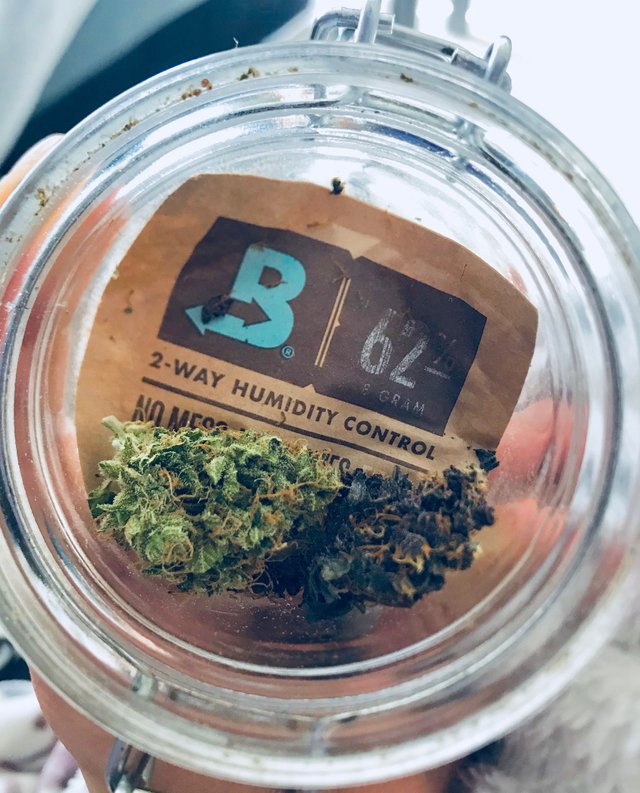
I upvote this post :) If you wish take a look at my work @strongmalina :) Have a nice day :) !!!
For only 28 out of 1000+ participants in the Dunedin study to have accounted for the entire 8 point IQ drop of the group, they would have had to have had a negative IQ, right? Something seems off there.
I suspect the intent of your excellent and thought-provoking article is to get people thinking about marijuana legislation v.v. other addictive substances, primarily alcohol, and you make a good point that marijuana is probably over-regulated by comparison.
I might argue that alcohol limitations ought to be increased, rather than that marijuana restrictions should be further decreased--especially for young people. One visit to a Chinese opium den might make everyone think twice about how far we want to go down the slippery slope to freer and freer use of impairment chemicals.
We don't think that young people should be indulging in anything mind-altering that might bend one's views on reality in a negative and long-lasting way. Marijuana does show to have negative effects on the minds of young frequent users, but it is an entirely different story for adults. Even if you forget about the absurdity of the legal situation we believe that what marijuana can really help with is problems deriving from the abuse of other drugs (legal or not).
I'm all for legitimate medicinal uses.